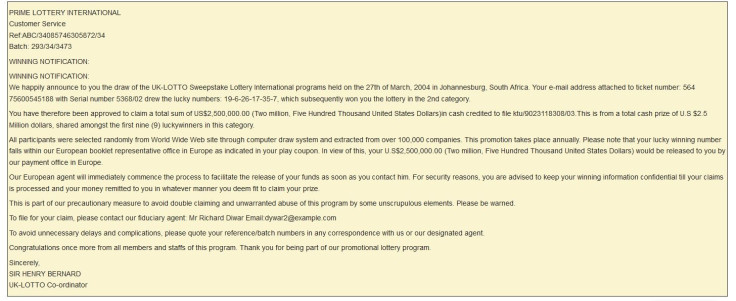How to spot fraudulent schemes online: From Pyramid Schemes to Phishing
Conning is an age-old practice that has evolved to work on the internet. There are several scams online. The best way to identify a scam is when the advertisement says, ‘Zero Risk, Zero Work, 100% profit’. First, there is no work with zero risk, let alone 100 percent profit from zero work. However, ‘make easy money’ announcements still get the web user's attention.
The following list provides some of the best ways to avoid, identify and understand how these various scams work.
1 | Pyramid Scheme:
This chain referral swindle works by luring people to join a scheme of services that promises revenue through new recruits, rather than sales. With meagre investments, these ingenious marketing strategies begin with paying the new recruit’s registration fee to the people above him or her and so on.
Usually, fraudulent pyramid schemes, involves ten levels. For example, a recruit starts with nine people on the first level and the next step for each person is to recruit ten people each, to total up to 100 recruits to access the next level.
These 100 should then recruit ten each to total up to 1,000 people to move up another level. The calculation continues for the rest of the levels such that, in order to reach the top of the pyramid, there should be 10 billion recruits, which is even more than the total number of people on Earth!
Such schemes usually work as advertised during the initial phase and new recruits are paid for their efforts. But this is basically an illusion, as the new recruits are paid back a fraction of the amount that they paid as the registration fee. The purpose of such initial pay backs is to make the new recruits think that they are earning money from the efforts they are putting in, but the reality is that they are simply getting a fraction of the amount they have paid as the registration fee.
The end result of such schemes is that they die a sudden death, when people at the top of the chain simply disappear and there is no one to contact.

2 | Minimal Deposit Work From Home Schemes:
There are numerous websites on the internet that offer freelancing opportunities, but we need to make a distinction here. Freelancing opportunities are real for those who have a particular skill set, but genuine freelancing websites will never ask freelancers to deposit money as a registration fee.
Think about it: if you know how to do the task and someone needs work to be done, then you are the one who needs to get paid, rather than paying to get work. Fraud freelancing websites offer work but they ask the freelancer to deposit a certain amount before they start receiving the work.
3 | Foreign Lottery winning or sweepstake notification out of the blue:
Mostly unheard of foreign lotteries make catchy headlines to lure gullible people. However, the truth is there is NO legal lottery that discloses its winning results to the winner by personal email.
Any winning notification, without the customer ever entering the lottery, is definitely a scam as no lottery service is a charity. In fact, there are also scammers putting up fraudulent schemes like secret jackpots that urge the winner to keep the winning news a strict secret. Anything that guarantees to make a person rich overnight is impossible and hence a swindle. In such cases scammers send emails to a large number of people informing them that they have won a huge jackpot. They also ask the recipient of the email to disclose their bank account information and deposit a certain amount of money in an offshore bank account as the processing fee for the transaction.

4 | Phishing:
Phishing scams are getting more and more common these days. In such scams people usually get emails or phone messages from scammers asking them to visit a specific website and enter critical information such as user names and passwords. These sites are designed to appear exactly like the one of your bank or Credit Card company. Once the information is entered, scammers use it to make illegal transactions. One must always keep in mind that banks and credit card companies never ask for personal information through emails.
5 | Easy Money Making Offers:
Another fraudulent scheme that sounds too good to be true is the promise of ‘easy profits.' Genius marketers often create inviting banners and videos, supposedly backing up the program with testimonials and proof of profits. After the client registers for the ‘Make Easy Money’ program and decides to apply for easy profits, the scam gets partially revealed. Soon after a user has provided personal information, he starts receiving harassing calls from online companies, urging him to deposit as much as he can to make higher profits. An investor's account will be wiped and there's often no way to recover the losses. Many example of such a scheme could be found on make easy money exposed forums.

Apart from the above, scammers also sell a list called the ‘Suckers List’ which includes the contact information of people gathered from social networking sites. Suckers List is also known as a Lead List. Fraudsters are always on the lookout for the contact information of potential targets. They usually browse through profiles on social networking websites and gather information such as email address and phone numbers. Once they gather all this information, they compile a list and sell it to scammers. Scammers then use this list to contact people and extract money from them on the names of fraud schemes.
There are also many websites that help people to cross check a website, email or content to identify if what they are encountering is a scam. A customer should always do sufficient research on any purchase before making a payment.





















